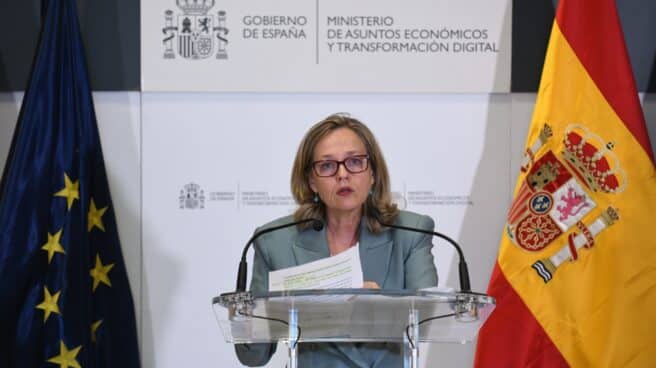

Nadia Calvinho, First Vice President and Minister of Economy and Digital Transformation of the Government of Spain.
First Vice President and Minister of Economy and Digital Transformation of the Government of Spain, Nadia Calvino, analyzed the current economic situation this morning in an interview with Carlos Alsina. In the course of the conversation, Calvinho insisted on a difficult situation of uncertainty, but ensuring that Spain is in a favorable position.
“We are in very complex geopolitical scenario since the beginning of the war. Gas exports from Russia have fallen by 70%, and we must work with a more sustainable scenario and higher inflation,” he assured.
“It is very unclear what Putin can do, if there is a gas shutdown, it could have a very big impact on European economies like Germany or Italy. and, consequently, to the entire European economy. The vice president insisted that the scenario is now more uncertain than a few months ago, so it is necessary to act “decisively, dexterously and effectively.”
For this reason, the possibility of a complete cessation of Russian gas supplies to some European countries, Calvinho recalled that the European Commission requires that all member states contingency plans.
“No one proposes a solution scenario for Spain”
However, Calvinho insists that the matter Spain starts in a better position than other countries directly dependent on Russia. “Our country has a third of Europe’s regasification plants, significant renewable energy penetration and large storage capacities.”
However, recognizing that you must be prepared for more negative scenarios, denied that Spain could be close to a solution. “No body rises recession scenario for Spainwe assume very strong growth during the first half of the year, and our forecasts for the second half of the year are also very good.”
“The situation in France is not comparable to the situation in Spain”
Regarding the French affair and the nationalization of the neighboring country’s main energy company, Calvinho notes that what happened in France is not comparable to the energy profile of Spain..
Calvinho explained that France has an important part of its nuclear park stoppedwhose return to activity would require a “massive investment” that “probably no private investor would be willing” to undertake.
“As far as I understand, this is why such an extreme action is being proposed. But in Spain we have a diversification of sources, energy technologies, this is an incomparable situation,” he stressed.
In any case, he believes that the decision of the French government to nationalize the EDF “interesting” for those who protect that nuclear energy is a decision when what happened in the French country shows the “tremendous cost” of using technologies “that are not meant for the future”.
Source: El Independiente